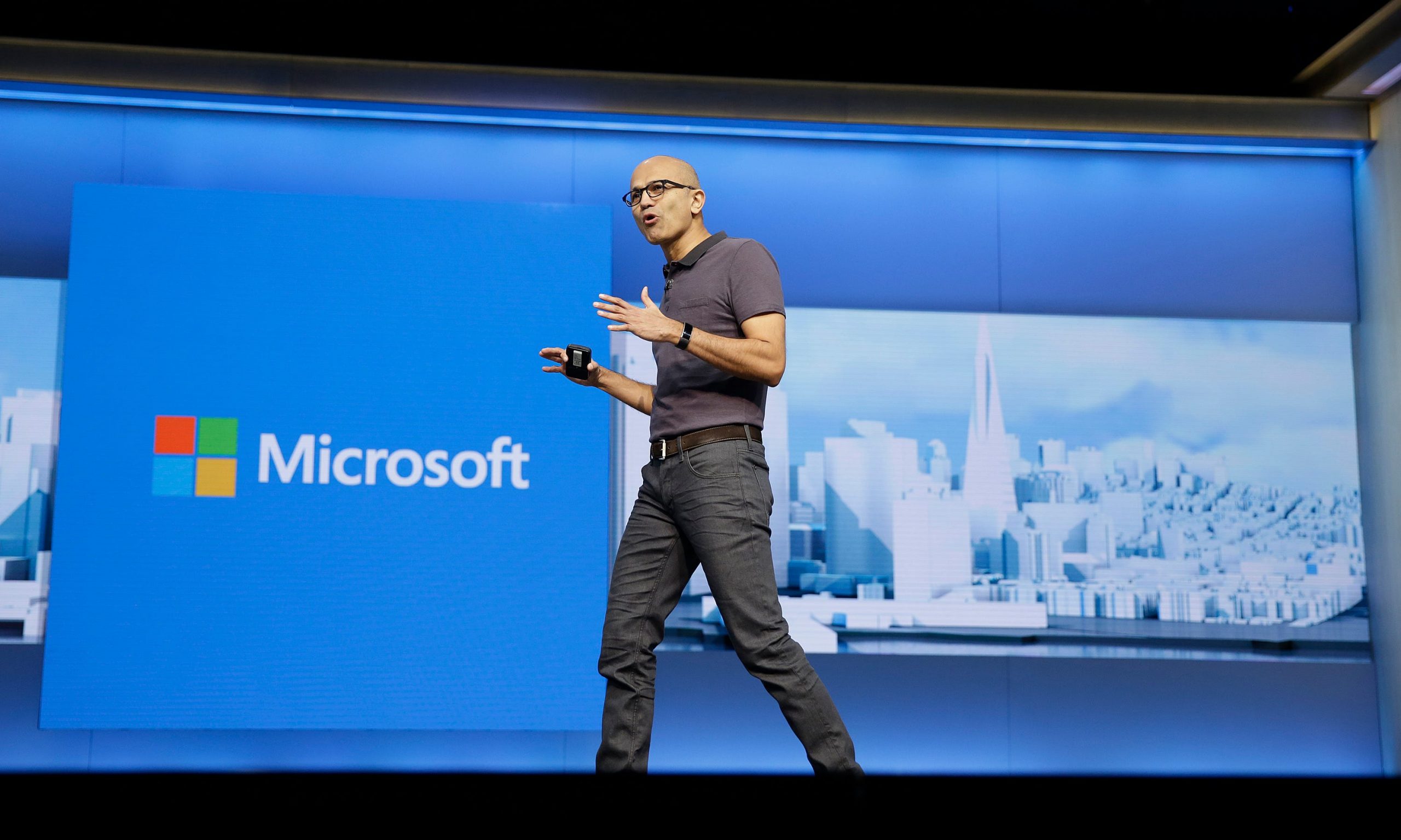- On the face of it, Microsoft’s decision to explore the possibility of spending billions on a TikTok acquisition seems like a weird business decision.
- Under CEO Satya Nadella, Microsoft has doubled down on cloud computing and productivity software, leaving the Xbox console as its last major consumer brand.
- TikTok – a mega-popular viral video app with 80 million daily active users in the US – doesn’t seem to tie into that strategy at all.
- But Nadella has earned the benefit of the doubt: Microsoft’s acquisitions of GitHub, LinkedIn, and “Minecraft” maker Mojang have gone very well, and TikTok could be the company’s one real shot at establishing a beachhead in social media and competing with Facebook.
- If the deal goes through, however, Microsoft will have to balance keeping TikTok’s users happy with the need to make a return on its investment – which would be difficult enough without the political drama surrounding the app.
- This is an opinion column. The thoughts expressed are those of the author.
- Visit Business Insider’s homepage for more stories.
By now you’ve probably heard that Microsoft has confirmed that it’s in talks to potentially acquire viral video app TikTok’s US operations, the latest development in a drama that began in June when the GOP began floating the idea of a ban.
It’s not clear how much Microsoft would pay, should the acquisition go through. But TikTok as a whole said to be recently valued at as much as $50 billion, so it’s likely that Microsoft would pay more for than the $26.2 billion it shelled out for LinkedIn in 2016, its largest acquisition to date.
Let me just cut straight to the point: This is a really strange move for Microsoft, given that TikTok ties in loosely at best to the strategy that’s made the company so successful under the past six years of CEO Satya Nadella’s leadership.
That’s not necessarily a bad thing, given the scale of the potential reward. The Wall Street Journal reports that China-based ByteDance, TikTok’s current owner, believes that the app has the potential to grow into a social-media juggernaut that could one day challenge Facebook directly. And the political hubbub around ByteDance and TikTok could mean this is Microsoft’s one and only chance get into this market.
If Microsoft can't pull it off, not only will it have spent all that money for nothing, it runs the risk of backfiring. If Microsoft were to bungle taking over TikTok, it would alienate the social-media network's estimated 80 million daily active American users - many, if not most, who are teenagers - and lose an entire generation of consumers.
Satya Nadella's acquisition win record earns him the benefit of the doubt, but Microsoft doesn't have a fabulous track record with consumers
To a certain degree, Nadella has earned the benefit of the doubt: His signature acquisitions - LinkedIn, code-sharing service GitHub, and "Minecraft" maker Mojang - have all been so far very successful under the Microsoft corporate umbrella, with all of them operating as largely-independent subsidiaries.
"Nadella has essentially had the golden touch since becoming CEO and its hard to argue with any bet MSFT has made over the last five years," Wedbush Securities analyst Dan Ives wrote in a note to clients on Monday morning.
It, therefore, seems unlikely that Microsoft would go through the trouble of talking to President Donald Trump about a TikTok acquisition if it didn't know exactly what it was getting into. One has to assume that Nadella has at least an inkling of how to keep TikTok successful while also ensuring it makes back the eye-watering amount it would spend acquiring TikTok.
Still, the fact remains that under Nadella, Microsoft has doubled down on cloud computing and productivity, placing a huge emphasis on the Microsoft Azure cloud and the Office 365 productivity suite. That strategy has paid dividends, with Microsoft's stock up some 33% this year to hit a $1.6 trillion market cap.
And for all of Microsoft's success in the corporate world, Nadella's reign has seen the company make some significant retreats in the consumer sphere. Most recently, Microsoft turned the lights out at Mixer, its rival to Amazon's Twitch live-streaming service (which, incidentally, started with the acquisition of a startup called Beam), and shuttered its retail stores. Before that, it killed Groove Music Pass, a Spotify competitor.
But the biggest example came in 2015, Nadella unwound the disastrous 2013 purchase of smartphone maker Nokia, taking a $7.3 billion writedown on a deal that had cost Microsoft $7.6 billion - a startling, but necessary, reflection of the fact that Microsoft's Windows phones were never going to catch up to iPhone and Android. In 2017, Microsoft killed off Windows 10 Mobile, probably the last version ever of Windows for smartphones.
The biggest purely-consumer brand Microsoft has left is Xbox. And while TikTok could have some sort of tie-in potential there, perhaps by way of an Xbox console integration to share short gameplay video clips, Mixer's failure is still fresh enough that the company might be wary of pushing that aspect too hard.
The rewards are increased relevancy and a serious toehold in the market ...
All of that is to say that Microsoft is staring down the barrel of spending billions of dollars to serve consumers, a market segment that has largely ignored most of the company's non-gaming overtures.
Again, that's not necessarily a bad thing. TikTok's immense popularity could be an attractive beachhead for Microsoft to make a go at consumer social media, even if it would be essentially starting from scratch. Ives writes that "while Xbox and gaming have been successful, MSFT with this deal would be making an aggressive bet to transform its consumer strategy with a major social media bet."
Another hint as to the thinking here is that Nadella has previously hinted that he sees Microsoft's enduring relevance as a priority. In 2017, Nadella told Wall Street analysts that he prides himself that after over four decades in business, Microsoft still makes regular appearances on Techmeme, a popular Silicon Valley news aggregator.
Plus, there's a very solid chance that Microsoft would come out of the deal hailed by American TikTok users as a hero, saving it from President Donald Trump's threat of a ban. That goodwill could soften fears that Microsoft's stewardship would change (or ruin) what users already like about it.
But getting it wrong could hurt Microsoft's reputation with the very consumers it's trying to win over
To my mind, however, there are three major business risks for Microsoft, both linked to its institutional inexperience with social apps like TikTok.
The first is the kind of reputational risk that comes any time a big company buys a beloved property. From Disney buying "Star Wars" to Yahoo acquiring Tumblr, these kinds of acquisitions create a heightened sense of scrutiny, as fans become extra-vigilant for signs of change under the new management. And there are few apps with fan-bases as dedicated as TikTok.
If the goal is to make Microsoft more relevant to consumers, getting TikTok wrong would do the opposite, souring all those users on the company for a long time.
The second, closely related threat, comes down to one word: Facebook.
"If TikTok is the next Instagram-like model (which we believe it is) then if MSFT passes up on this asset it would be missing a golden opportunity," Ives writes. "However, if TikTok becomes the next Snapchat and has a host of user growth and monetization issues in the future, then this acquisition could detract from the valuation over time given massive competition from Facebook and others."
So while Microsoft has the potential here to become a serious social-media player, the market is fickle and the business models are tricky. With Facebook getting into the game with Instagram Reels, and others preparing their own assaults on TikTok's business, Microsoft could find itself signed up for a tougher fight than anticipated.
Finally, and least predictably, is the antitrust factor. While Microsoft has so far avoided regulatory scrutiny, including a notable absence at the Big Tech antitrust hearing last week, acquiring TikTok could drag the company into the Trump administration's crosshairs amid escalating China tensions. That could cause headaches that far outweigh whatever benefits TikTok brings.
Ultimately, it's a weird move for Microsoft, but with big potential upside
The bottom line here is that no, TikTok doesn't fit in with anything Microsoft is already doing. But that might be precisely why Microsoft is so interested in the first place, giving the company a shot at accelerating from zero to social-media juggernaut and establishing its bona fides as a consumer company outside of gaming.
There are few companies quite like TikTok, however, and none in recent memory that carry as much baggage or face the same kind of competition or scrutiny from all corners.
For every challenge that Nadella has met and conquered, this will be one of the toughest, and almost certainly the riskiest. Pulling it off will further secure his legacy as chief executive, accomplishing yet another thing at Microsoft that might have been unthinkable in the not-so-distant past. With this much money on the table, however, failure would be likely to come with real consequences.

